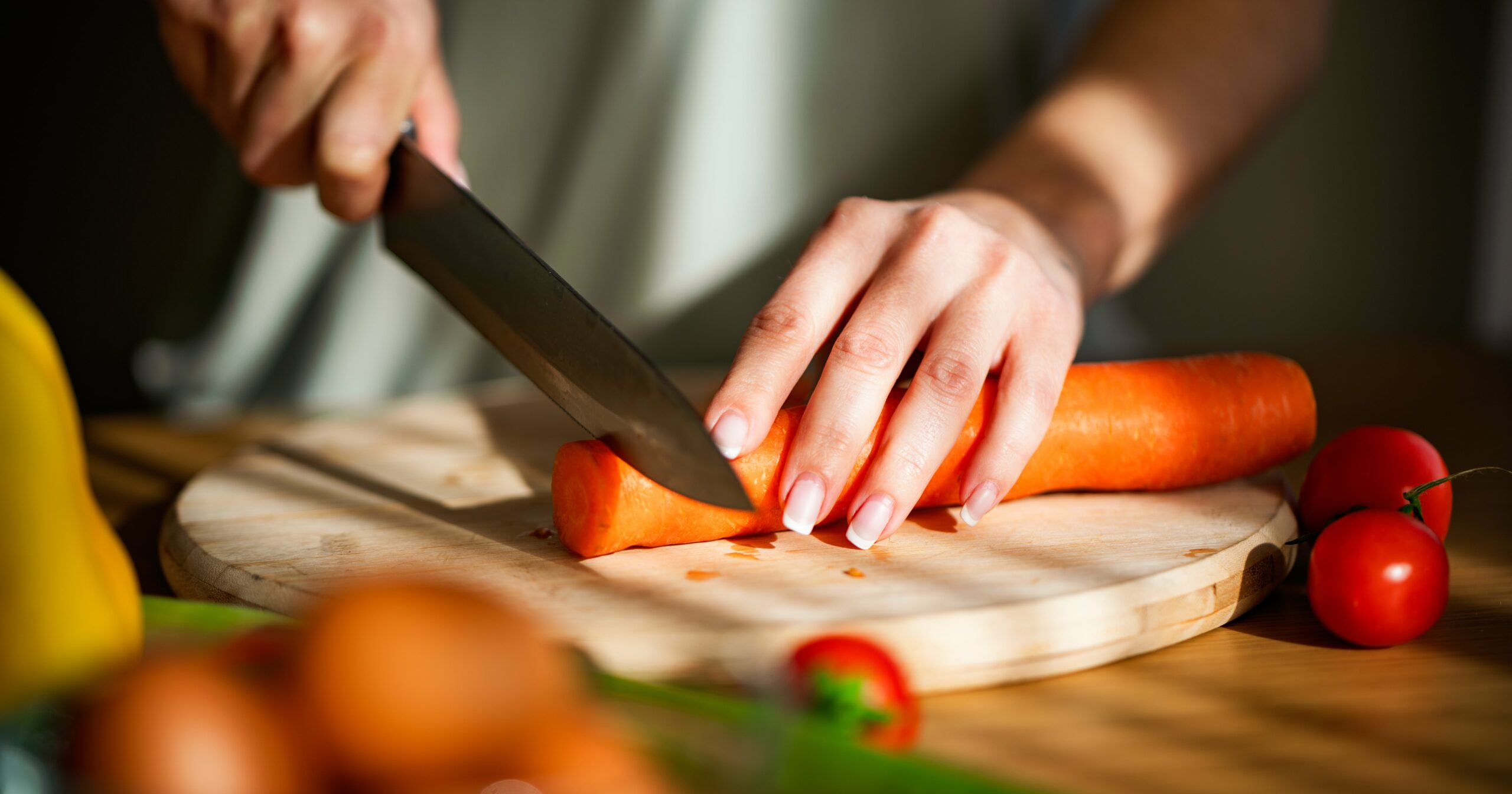I’ll be the first to admit that I’m no chef. The most elaborate meals I cook come from the Trader Joe’s frozen section. But on the rare occasion I want to bake a chicken dish or sauté some vegetables, it never quite hits. And when I say it “never quite hits,” I mean I have a pizza delivery on standby just in case.
It’s not that my food is bad; it is edible. But even if I follow a recipe down to the last teaspoon of garlic powder, it never compares to the same dish made by someone else. One example: my mom’s grilled chicken. It’s juicy, perfectly seasoned, and I could eat it every day. My chicken? So dry that it may actually be a choking hazard.
Then there’s vegetables like Brussel sprouts, which I love ordering from restaurants. The tasty little balls of joy always come out perfectly. But when I make them myself? Slightly charred and overly mushy. So why is it that food made by others tastes infinitely better than anything I make myself?
Fortunately, I’m not the only one who seems to have this problem. There are many Reddit threads dedicated to people searching for answers on why their food tastes worse than food made at restaurants or by others who make the same dish, too. And though I’m not exactly happy to commiserate with other people over our inability to cook chicken, I spoke with experts to find out what the deal is.
Experts Featured in This Article
Scott Duke is the chef at The Colonnade, a restaurant in Atlanta.
Rena Awada is the owner and head chef at Healthy Fitness Meals LLC, a website offering hundreds of healthy recipes.
Sarah Bond is a food scientist, nutritionist, and recipe developer at Live Eat Learn, a food blog with vegetarian recipes.
Why Does Food Taste Better When You Buy It, Instead of Making It?
Most restaurants are not shy when it comes to using oils, butter, and seasonings in their meals. Cooking at home is notoriously healthier than going out to eat, after all. But a big reason why food may taste better when you’re out is because chefs are using much more oil, butter, and seasonings than what you’d normally cook with.
It’s also because chefs have access to industrial kitchen appliances and equipment that the average person does not. “Access to a fryer is something few homeowners have, yet almost every restaurant has,” chef Scott Duke says. “Is fried chicken going to taste better deep-fried in oil or pan-fried in oil?”
Chefs also can get their hands on premium quality meats and ingredients that may be unavailable or hard to find for others, Duke says. “Having a great quality cut or the 10 different spices needed to make a recipe may be the game changer.”
And, of course, restaurant chefs are also trained to make food taste good. It’s their job! It’s not exactly surprising that a chef can prepare meat or vegetables better than I can – I’m a writer, after all. “Chefs spend a lot of time learning and practicing cooking techniques and perfecting recipes, so they know exactly how to bring out the best flavors in every dish they make,” chef Rena Awada says.
“Chefs know exactly how to bring out the best flavors in every dish they make.”
It’s not just about the oils, butter, seasoning, and ingredients, though. According to food scientist Sarah Bond, it has everything to do with what’s called “sensory specific satiety.” Bond explains it like this: “When you cook at home, you’re exposed to the aromas of the food as you prepare it, which can desensitize you before you even take the first bite.” But when someone else is preparing the food for you – whether that’s a chef at a restaurant or your mom – you’re not immersed in the cooking process. And because you’re not involved in the cooking process, you can enjoy the food more. “The flavors hit your senses all at once, making them feel more intense (and usually more tasty),” Bond says.
Fortunately, there are some ways to make food taste, well, less bad when you cook it, according to our experts. The first step: shopping for high-quality and fresh ingredients. Though most restaurants have suppliers that provide them with the freshest ingredients, Awada recommends shopping at a local farmer’s market or joining a community-supported agriculture program to get the best produce and meats.
She also recommends seasoning – like, more than you think you need to season. “Seasoning can really bring out the flavors in your dish, so don’t be afraid to use enough salt, pepper, and other spices,” Awada says. “It’s one of the easiest ways to elevate your food and make it taste like it’s from a restaurant.”
As you’re preparing your food, Bond recommends taking breaks. “Take breaks while cooking to step away from the kitchen and ‘reset’ your senses,” she says. Then, “use finishing touches like a drizzle of flavored oil, a squeeze of fresh lemon, or a sprinkle of herbs right before serving.”
Though I’m not going to add a deep fryer to my Amazon cart any time soon, at least I know my culinary skills aren’t entirely my fault.
Taylor Andrews (she/her) is the balance editor at PS, specializing in topics relating to sex, relationships, dating, sexual health, mental health, travel, and more. With seven years of editorial experience, Taylor has a strong background in content creation and storytelling. Prior to joining PS in 2021, she worked at Cosmopolitan.



